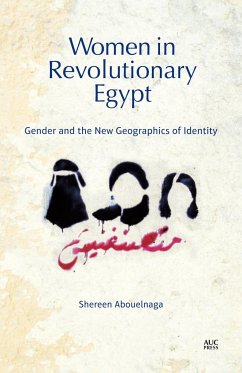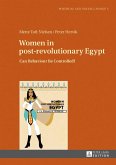The 25 January 2011 uprising and the unprecedented dissent and discord to which it gave rise shattered the notion of homogeneity that had characterized state representations of Egypt and Egyptians since 1952. It allowed for the eruption of identities along multiple lines, including class, ideology, culture, and religion, long suppressed by state control. Concomitantly a profusion of women's voices arose to further challenge the state-managed feminism that had sought to define and carefully circumscribe women's social and civic roles in Egypt.
Hinweis: Dieser Artikel kann nur an eine deutsche Lieferadresse ausgeliefert werden.
Hinweis: Dieser Artikel kann nur an eine deutsche Lieferadresse ausgeliefert werden.








